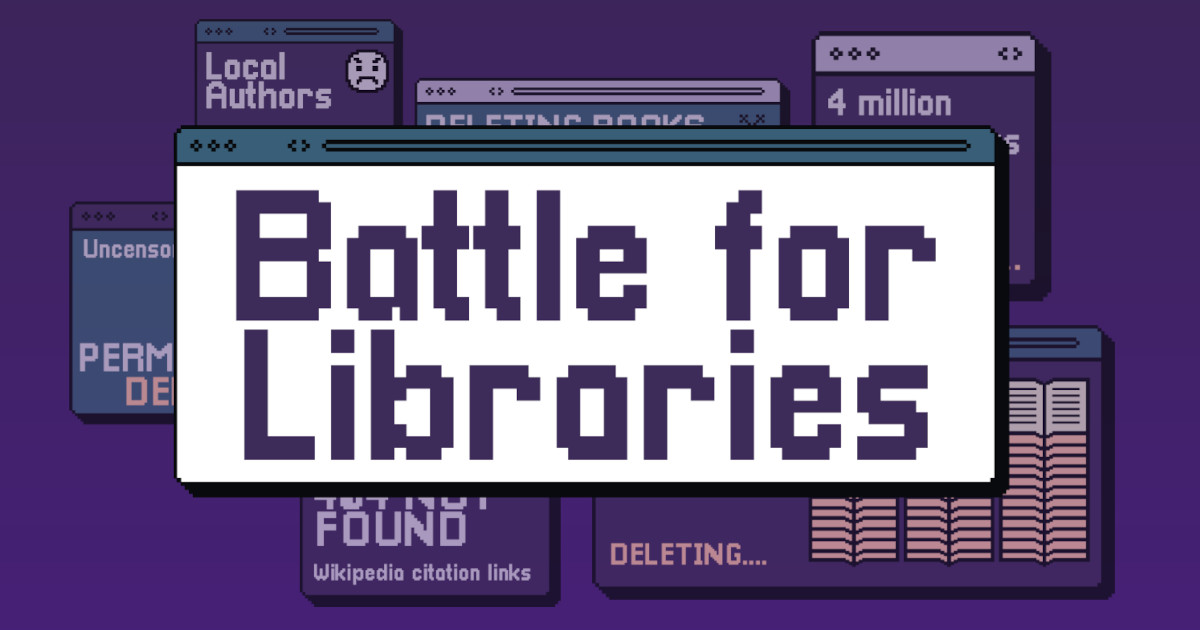Battle for Libraries
www.battleforlibraries.comDon’t let libraries die. As the future goes digital, major publishers are suing to cut off libraries’ defense of digital books from censorship. It’s time to fight back.
It looks like the internet archive is needed assistance, I just heard about this today and figured lemmy could help spread this message around
You must log in or register to comment.
A place to discuss privacy and freedom in the digital world.
Privacy has become a very important issue in modern society, with companies and governments constantly abusing their power, more and more people are waking up to the importance of digital privacy.
In this community everyone is welcome to post links and discuss topics related to privacy.
Some Rules
- Posting a link to a website containing tracking isn’t great, if contents of the website are behind a paywall maybe copy them into the post
- Don’t promote proprietary software
- Try to keep things on topic
- If you have a question, please try searching for previous discussions, maybe it has already been answered
- Reposts are fine, but should have at least a couple of weeks in between so that the post can reach a new audience
- Be nice :)
Related communities
much thanks to @gary_host_laptop for the logo design :)
- 0 users online
- 108 users / day
- 435 users / week
- 1.32K users / month
- 4.54K users / 6 months
- 1 subscriber
- 4.61K Posts
- 116K Comments
- Modlog







Their argument towards fair use wasn’t ignored. It was inapplicable.
Except that’s exactly what they did. They knowingly and blatantly violated copyright law. They had a system in place to ensure fair use compliance. They intentionally disabled that system, in violation of fair use, to allow unlimited free downloads of the books they had archived.
IA’s entire argument was basically “but we’re a library” and totally missed the part where even public libraries need to comply with copyright law. Even with ebooks, they can’t simply distribute an unlimited number of copies; They have licensing agreements in place, for a specific number of specific ebooks to be checked out at any one time. And they have to use time-locked DRM to ensure compliance, by automatically revoking users’ reading ability when their check-out time is up. IA did precisely none of that.
Huh. TIL. I always wondered why libraries treat ebooks like physical books.